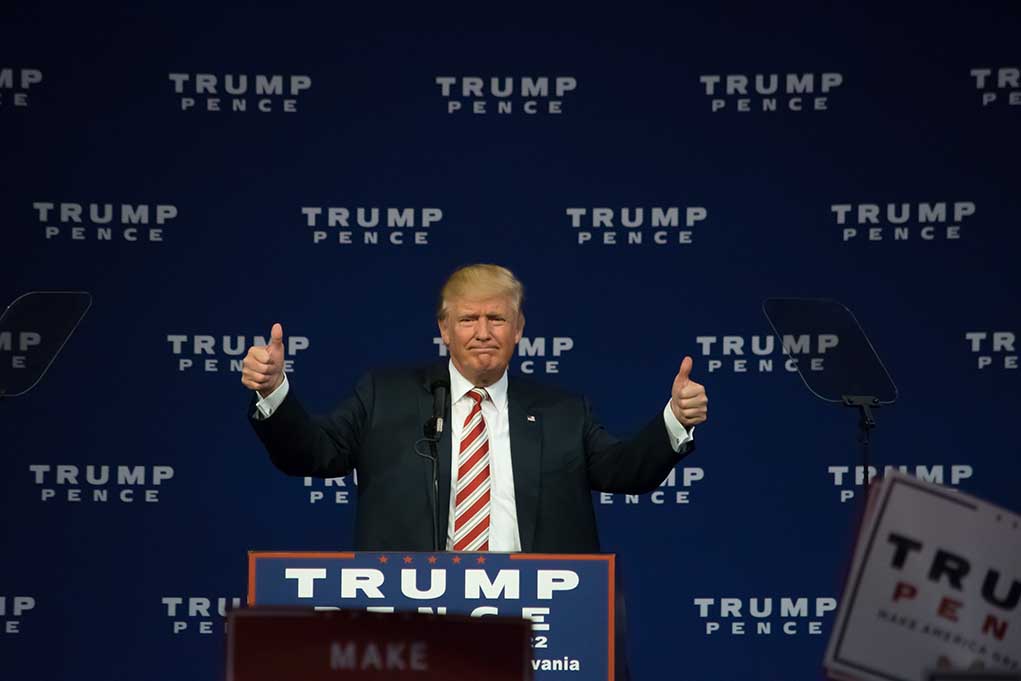
President Trump slams South Africa’s controversial Expropriation Act, calling it a direct attack on Afrikaner farmers and cutting US aid to the nation in response to what he describes as racial discrimination disguised as land reform.
Key Takeaways
- South Africa’s Expropriation Act, signed January 23, 2025, allows the government to seize private property with compensation, but includes provisions for expropriation without compensation under certain conditions
- President Trump has denounced the law, issued an executive order offering refugee status to Afrikaner farmers, and cut US financial aid to South Africa
- The ANC government maintains the law is constitutional and necessary to address colonial-era land inequities where white South Africans (7% of the population) own 70% of commercial farmland
- Opposition parties warn the law threatens property rights and could trigger economic collapse similar to Zimbabwe’s failed land redistribution program
- The diplomatic dispute has further strained US-South Africa relations, already tense due to South Africa’s ICJ case against Israel over Gaza
Trump Administration Takes Stand Against South African Land Law
President Donald Trump has taken decisive action against South Africa’s new Expropriation Act, cutting US financial aid and issuing an executive order offering refugee status to Afrikaner farmers. The controversial law, signed by South African President Cyril Ramaphosa on January 23, 2025, authorizes the government to acquire private property for public purposes, with provisions allowing for expropriation without compensation under specific circumstances. The Trump administration has characterized the law as targeting South Africa’s white minority, particularly farmers of Dutch descent.
“In shocking disregard of its citizens’ rights, the Republic of South Africa (South Africa) recently enacted Expropriation Act 13 of 2024 (Act), to enable the government of South Africa to seize ethnic minority Afrikaners’ agricultural property without compensation,” President Trump stated, according to Al Jazeera.
— @amuse (@amuse) May 21, 2025
Constitutional Controversy and Historical Context
The Expropriation Act replaces legislation from 1975, with supporters claiming it aligns with South Africa’s post-apartheid constitution. Land Reform Minister Mzwanele Nyhontso has defended the law as addressing historical injustices dating back to colonial times. At present, approximately 70% of South Africa’s commercial farmland remains owned by white South Africans, who constitute just 7% of the total population. This disparity stems directly from the 1913 Natives Land Act and subsequent apartheid policies that systematically dispossessed Black South Africans of their land rights.
“The Expropriation Act intends to take the land and redistribute it, legally… We use this act as an opportunity to advance the cause [of activists] for land restoration and land justice,” said Mzwanele Nyhontso, Land Reform Minister.
Opposition parties, including the Democratic Alliance (DA) and Freedom Front Plus, have challenged the law’s constitutionality in court. They argue the provisions allowing for zero compensation violate South Africa’s constitution and international property rights norms. The DA has been particularly vocal, warning the legislation threatens economic stability and investor confidence in ways that could trigger economic collapse similar to Zimbabwe’s disastrous land reform experience.
Zimbabwe’s Cautionary Tale
Critics of South Africa’s approach point to neighboring Zimbabwe as a stark warning. Beginning in 2000, Zimbabwe’s government under Robert Mugabe seized white-owned farms without compensation, leading to violent land invasions, agricultural collapse, and economic devastation. Once the breadbasket of southern Africa, Zimbabwe plunged into hyperinflation and food shortages. South Africa’s opposition parties fear similar consequences if the Expropriation Act is implemented in ways that undermine property rights and agricultural productivity.
“Every country has legislation to ensure a state can, with fair compensation, build public infrastructure, but this Act goes too far outside these accepted international norms,” stated the Democratic Alliance (DA).
The Act specifies conditions where expropriation without compensation might apply, including abandoned or unused land, property held purely for speculation, or land occupied by labor tenants. While the law requires authorities to first attempt negotiated settlements with landowners, the final determination of “just and equitable” compensation rests with the government. This has raised significant concerns about potential abuses of power and selective enforcement targeting particular demographic groups.
Deepening Diplomatic Crisis
The land expropriation dispute comes amid already strained US-South Africa relations following South Africa’s case against Israel at the International Court of Justice over actions in Gaza. President Ramaphosa is scheduled to meet with President Trump to address the deteriorating relationship between the two nations. Adding to the tensions, Trump ally Elon Musk has publicly criticized the law, claiming it threatens his business interests in South Africa. The Ramaphosa administration has strongly denied allegations of a “genocide” against white farmers, attributing farm attacks to broader crime issues facing the country.
“The recently adopted Expropriation Act is not a confiscation instrument, but a constitutionally mandated legal process that ensures public access to land in an equitable and just manner as guided by the Constitution,” stated Ramaphosa’s office.
Meanwhile, grassroots land activists continue pushing for more rapid land redistribution, arguing the pace of reform has been too slow since the end of apartheid in 1994. Bettie Fortuin, a 60-year-old activist, expresses this frustration: “There’s a slogan that says… ‘the land shall belong to those who work the land’. I was 13 years old when I started working on the land and I’m over 60 now, and I still haven’t got land.” The government maintains the Expropriation Act will help accelerate land reform while respecting constitutional principles.
















